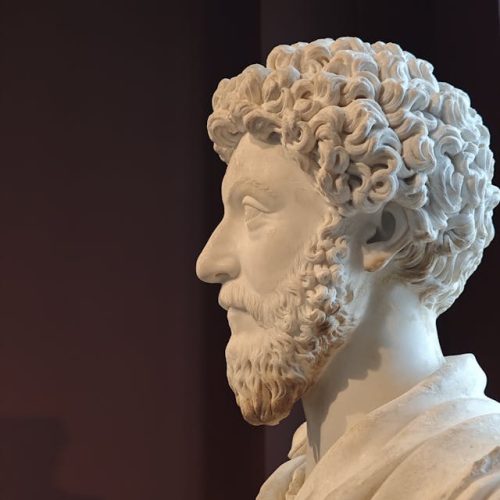The Basics of Stoicism

-
Save
Stoicism, an ancient philosophy with enduring relevance, offers practical wisdom for navigating life’s challenges. Let’s explore the fundamental principles of Stoicism and how you can apply them to enhance your well-being and resilience.
What is Stoicism?
At its core, Stoicism is two things:
Ethical Values: Stoicism guides us toward virtuous living, fostering happiness, resilience, and peace of mind. It helps us avoid negative emotions like guilt, anger, and jealousy.
Avoidance of Evil Stoicism encourages us to focus on what we can control and to act virtuously, minimizing ego-driven desires and attachments.
Living in Accordance with Nature
Stoicism emphasizes:
Reason: Reason is essential for a good life. Use it to make wise choices and cultivate self-control.
Moderation: Rather than rejecting pleasure entirely, practice moderation. Excesses lead to suffering, while balance brings contentment.

-
Save
Key Stoic Texts
Start your Stoic journey with these texts:
The Meditations of Marcus Aurelius: Written by the Roman Emperor Marcus Aurelius, this small book offers aphoristic insights. It’s not a systematic account but provides valuable reflections on life and virtue. I recommend Gregory Hayes’ translation.
The Handbook of Epictetus: Arrian, a student of Epictetus, compiled this concise manual. Epictetus, a Stoic philosopher, emphasizes practical wisdom and resilience. The Handbook is confrontational yet impactful.
The Discourses of Epictetus: If you enjoy the Handbook, delve into Epictetus’ more extensive Discourses. These recorded lectures provide deeper insights into Stoic philosophy
Practical Stoic Principles
Here are essential Stoic practices:
Focus on What You Can Control: Differentiate between what you influence and what you don’t. Concentrate your efforts where they matter.
Take Action: Stoicism is about doing, not just thinking. Apply wisdom in your daily life.
Cultivate Virtue: Strive for moral excellence. Live by principles like courage, justice, wisdom, and temperance.
Lead by Example: Be the change you want to see. Model Stoic virtues for others.
Diminish Your Ego: Recognize that entitlement leads to suffering. Let go of excessive desires.
Exercise Your Will: Develop mental resilience. Face challenges with equanimity

-
Save
Remember, Stoicism isn’t about suppressing emotions but about responding wisely to life’s events. As you explore Stoic teachings, adapt them to your circumstances and find your path toward tranquillity and virtue.

-
Save
Share via:
